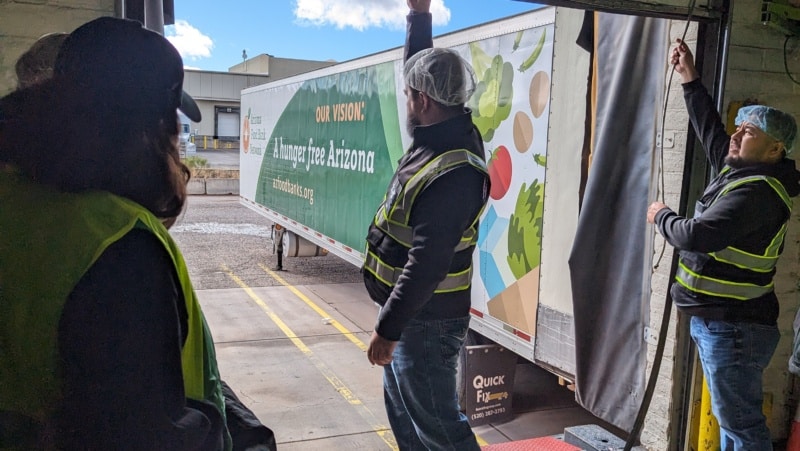AAFB POSITION ON PUBLIC CHARGE
Background: On October 10, the Department of Homeland Security announced a proposed rule that would broaden federal immigration law’s long-standing public charge assessment. This immigration test is applied to legal immigrants when they enter the country or change their status to legal permanent resident. The new rule proposes two major changes: (1) Shifts the definition of “public charge” from likely to become “primarily dependent” on government assistance to one “who receives public benefits”; and (2) Expands the benefits considered to include the Supplemental Nutrition Assistance Program (SNAP), Medicaid, Medicare Part D, and housing assistance. The Association of Arizona Food Banks (AAFB) believes the proposed rule would have devastating effects on Arizonans facing hunger.
AAFB Position Statement: The Association of Arizona Food Banks (AAFB) opposes the proposed changes to the Inadmissibility on Public Charge Grounds rule. Legal members of our community should not be forced to choose between permanent legal status in the United States and the ability to feed their families. Of the 1 million Arizonans struggling with food insecurity, 850,000 of them—nearly 50 percent children—participate in SNAP each month. Among Arizona’s SNAP participants, roughly 1,200 are legal permanent residents—an amount that has dropped nearly 25 percent since 2017. Receipt of this benefit should not cost them their path to legal permanent residency. According to the Department of Homeland Security, the proposed rule changes are likely to lead to “worse health outcomes, including increased prevalence of obesity and malnutrition, especially for pregnant or breastfeeding women, infants, or children;” “increased poverty;” and “indirect costs to community-based organizations that provide charitable assistance, such as food assistance, for individuals who forego enrollment in public benefit programs.” AAFB finds these consequences unacceptable.
The proposed rule change has already affected food insecurity in Arizona. Families have foregone needed food assistance from food pantries within AAFB’s network out of fear their immigration status would be jeopardized. Nearly 640,000 schoolchildren in Arizona participate in the National School Lunch Program, which often provides the only full meal a child in a food-insecure household receives each day. Food Service Departments in districts across the state have seen a decrease in NSLP applications due, in part, to the proposed rule’s chilling effect. If SNAP enrollment continues to decline for legal permanent residents, fewer students will be directly certified to receive free school meals.
Please contact AAFB if you have any questions about this important but complex issue. You can reach Public Policy Manager Ashley St. Thomas at [email protected] or 602-775-5035.

